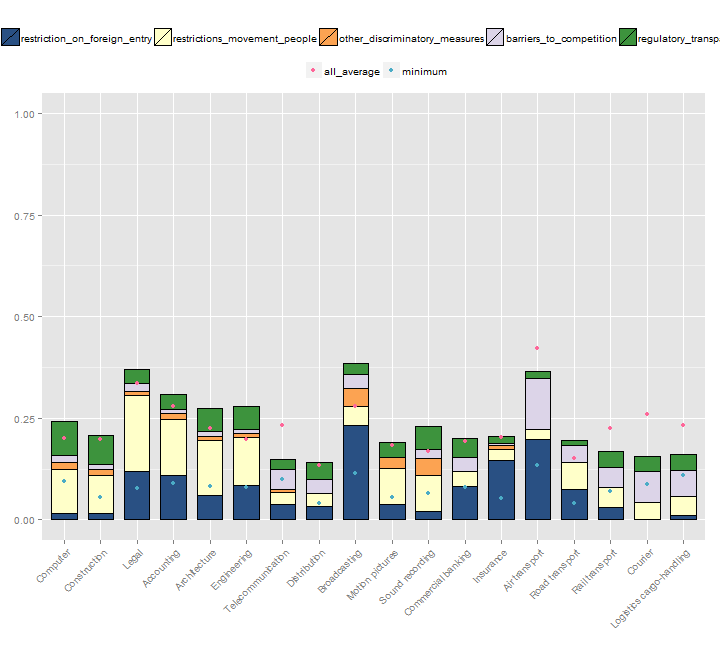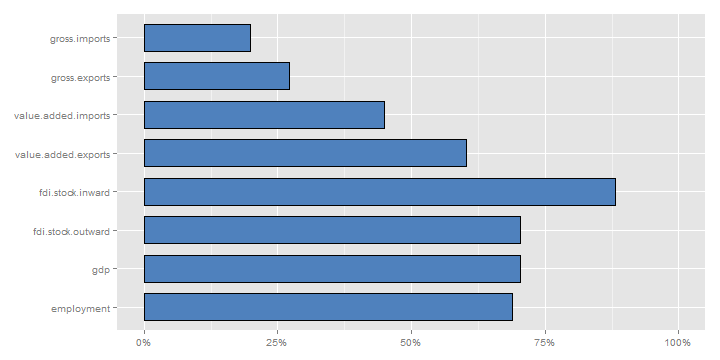OECD Services Trade Restrictiveness Index (STRI): Austria
Austria exported services worth USD 67.0 billion and its services import value was USD 53.2 billion in 2014. Travel is Austria's largest services exports and the largest services imports category is transportation services. Austria's score on the STRI index in the 21 sectors is shown below, along with the average and the lowest score among the 42 countries included in the STRI database for each sector.
STRI by sector and policy area, 2015

Austria has a higher score than average on the STRI in 13 out of 21 sectors (maritime transport is excluded for landlocked countries). A general regulation that contributes to the STRI in all sectors is economic needs tests for temporary services providers who may stay in the country for up to 12 months on their first entry permit while certain types of intra-corporate transferees, such as senior level persons in charge of supervision or direction, are exempted from such labour market tests. There are no legal requirements for public comments procedures open to interested person including foreign suppliersobligations to consult with stakeholders during the preparation of laws and regulations at the federal level although it is a common practice to have such consultation procedures. Acquisition of land or real estate by foreigners is subject to authorisation.
The sectors with the lowest STRI scores
Logistics freight forwarding, Distribution and Logistics customs brokerage are the three sectors with the lowest STRI scores. In the logistics sectors, air crew and seaman are exempt from visa requirements while truck drivers are not. Distribution services consist of wholesale and retail trade. Only a couple of sSector-specific regulations in this sector are recorded under barriers to competition, such as including restrictions toon opening hours.
The sectors with the highest STRI scores
The sectors with the highest STRI scores are Broadcasting, Legal and Air transport. In broadcasting, Austria employs foreign equity restrictions. Austria requires that the majority of the shares in broadcasters must be owned by Austrian or EEA nationals. Eligibility for some subsidies for audio-visual work is restricted to productions with significant Austrian participation. The EU Audio-visual Media services directive requires that broadcasters reserve at least half of transmission time for European works. Austria's score in broadcasting is substantially higher than the average for this sector.
Efficient services sectors matter

Services account for 27% of Austria's gross exports, but 60% of value-added exports, indicating that Austria's exports of goods rely intensively on services inputs. Cost effective state of the art services are therefore of utmost importance for the competitiveness of the Austrian industrial sector. The services share of inward investment is relatively high in Austria. The STRI profile suggests that Austria can further improve efficiency by focusing on those sectors, such as professional services, that are essential inputs to other goods and services providers such as professional services. Services account for 69% of employment, which implies that earnings and aggregate demand depends crucially on productivity in the services sector.
More information
- Access all of the country notes, sector notes and interactive STRI tools on the OECD website at http://oe.cd/stri
- Contact the OECD Trade and Agriculture Directorate with your questions at stri.contact@oecd.org